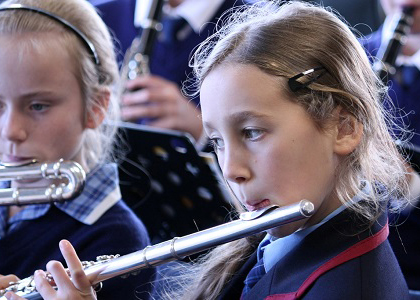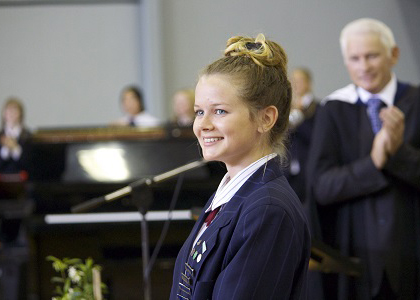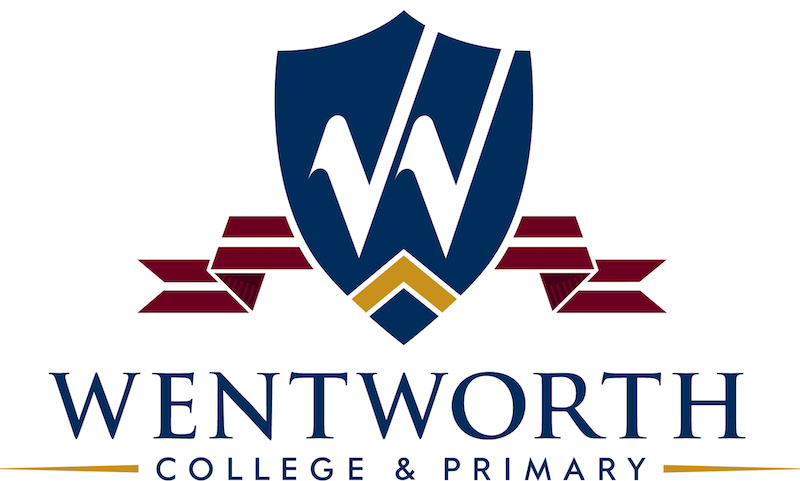PRIVATE SCHOOL REVIEW REPORT: WENTWORTH COLLEGE
1. BACKGROUND
Introduction
The Chief Review Officer has a statutory duty to report on the performance of private schools throughout New Zealand.
Under section 35A of the Education Act 1989, private schools are required to be “efficient”. The Act defines “efficient”, in relation to a private school as –
- Having suitable premises, staffing, equipment, and curriculum; and
- Usually providing tuition for 9 or more students who have turned 5 but are under 16; and
- Providing suitably for the inculcation in the minds of students of sentiments of patriotism and loyalty; and
- Giving students tuition of a standard no lower than that of the tuition given to students enrolled at… schools of the same class.
This report focuses on the extent to which the school meets this requirement and other statutory obligations.
This review report was prepared in accordance with standard procedures approved by the Chief Review Officer.
About the School
| Location | Gulf Harbour, Whangaparaoa |
| Ministry of Education Profile number | 484 |
| School type | Secondary (Year 7 – 15) |
| Decile rating¹ | 10 |
| Number of Teachers | 19 |
| School roll | 205 |
| Ethnic composition | NZ European /Pakeha 80%, Maori 1%, other European 15%, other 4% |
| Gender composition | Male 54%, Female 46% |
| Review team on site | Aug-09 |
| Date of this report | 13-Oct-09 |
| Previous ERO report | Private School Review, December 2006 Private School Review, October 2003 |
2. EFFICIENT
Wentworth College is an independent, coeducational school designed to cater for students from Years 7 to 15. The secondary school maintains strong links with the adjacent primary school, which operates under the same principal and board.
Previous ERO reports in 2003 and 2006 acknowledged the high quality education that the school provides in a positive and caring environment. The founders’ commitment to providing an all-round education in an environment that is both supportive and challenging is reflected in the work of senior leaders and staff The investment in high quality buildings and equipment, generous staffing ratios, and ongoing professional development has been significant. The benefit is evident in the high levels of student engagement in academic learning and in an extensive range of sporting, cultural and social activities. Students thrive in this environment of mutual respect and support.
The 2003 ERO report acknowledged that the principal and deputy principal were committed to ensuring that programmes and learning opportunities enabled every student to achieve his or her personal best. Senior staff have continued to work collaboratively to manage the growth of the school. They provide a model of enthusiastic leadership and engagement in the life of the school that encourages all staff to enjoy not only their teaching but also participation in a diverse range of activities to support the growth and development of students.
Suitable curriculum and standard of tuition
The expectations of teaching and learning at the school are based on principles of mutual respect, enjoyment of learning, and engagement. Classrooms are purposeful and students clearly enjoy the opportunities they have to explore ideas and to establish a sound knowledge base. Teachers are skilled at questioning and exploring ideas with students in a climate in which students can take risks intellectually and be supported by teachers and fellow students. Small class sizes, and the respectful relationships evident between teachers and students, and among students, foster a climate of exploration and personal challenge. Students are encouraged to respect and acknowledge achievement in a wide range of areas.
Students achieve well in National Certificates of Educational Achievement (NCEA). In 2008, over half of the students achieved merit or excellence endorsements. Monitoring these results overtime will enable senior staff to compare the achievement of students at the school with that of students in similar schools. Teachers make increasing use of standardised assessment tools at Years 7 to 10 to enable them to determine how the achievement of these students compares with that of students nationally.
Teachers with curriculum and subject areas responsibilities make very good use of NCEA data to analyse the programmes they are providing and to identify the extent to which they are meeting the needs of the students. Care is taken to ensure that moderation processes are accurate and timely. Students benefit from the wide range of courses available.
Teachers link the contexts and achievement objectives of the current New Zealand curriculum into their schemes and programme planning. They incorporate New Zealand contexts into many of their teaching programmes, particularly in the humanities and arts subjects. Teachers’ emphasis on developing students’ cognitive and personal skills is in accordance with the key competencies of the revised New Zealand curriculum.
Suitable staffing
The board places a premium on employing well qualified staff who are likely to contribute effectively to the wider life of the school. Good systems are in place to make expectations clear and a collegial culture has developed.
Good systems have been set up to manage the performance of staff. Teachers have opportunities for ongoing professional development in good teaching practice in both subject-specific areas and across the curriculum. The next step is to link teachers’ appraisal more closely to their individual professional development programme.
The particular focus for professional development over the last year has been on preparing to teach the Cambridge International Examinations (CLE) curriculum as the board wishes to introduce this qualification system.
The principal and deputy principal provide strong professional leadership as the school continues to develop and increase in size and complexity. Staff who have responsibility for specific areas of the school are encouraged to reflect on their areas and to use all available data for self review and forward planning. The school culture of high professional standards and commitment to the wellbeing of the students and staff is a fine model for emergent leaders to emulate.
Suitable premises and equipment
The growth of the school over a short period of time has been considerable. Significant new developments include the provision of all-weather Astroturf facilities and the expansion of specialist technology provision, as well as good ongoing provision of resources to support teaching and learning. Well planned premises and equipment now make it possible for older students to select different technology subjects, including food technology, hard material and fabrics, that link together with a common emphasis on design and problem solving, and enable students to design and create worthwhile projects.
Science laboratories are designed to facilitate hands-on learning and students are actively engaged in experimental work for much of the time because the good standard of resources and equipment make it possible. Specialist provision of art, music, science, technology, physical education and health is a feature of the Year 7 and 8 programme.
Sports facilities have always been a feature of the school. The very large gymnasium, dance studio and weights room are all part of a complex that promotes physical activity. The well developed strategic plan for this part of the school is a very good model for future growth and ongoing self review.
The development of the library is particularly noteworthy. In a comparatively short period of time, an attractive facility has been developed that provides students with easy access to independent research, including a very good range of appropriate periodicals, and a wide and well selected stock of material to promote the love of reading.
Patriotism and loyalty
The school continues to promote suitable values of patriotism and loyalty. Students are encouraged to contribute to the community and to develop individual leadership skills that demonstrate high standards of ethical conduct and personal and social responsibility. Lessons and resource materials are firmly grounded in a New Zealand context and, at the same time, students are encouraged to consider global issues and complexities.
3. STATUTORY OBLIGATIONS
Wentworth College meets its statutory obligations. Good systems are in place for monitoring regulatory compliance and for reporting to the board.
4. OTHER MATTERS
Provision for International Students
Compliance with the Code of Practice for the Pastoral Care of International Students and the Provision of English Language Support.
Wentworth College is a signatory to the Code of Practice for the Pastoral Care of International Students (the Code) established under section 238F of the Education Act 1989. This is a requirement of all schools that enrol international students in terms of the Act. Schools are also required to provide English language support for their international students.
Wentworth College currently has ten international students enrolled. The college caters for international students from Year 7 onwards.
The school complies with all aspects of the Code.
Good systems are in place to ensure that students are well looked after. Key staff monitor students’ accommodation and ensure that all-information held by the school is up to date. The challenge of integrating international students fully into the life of the school is met in part by the careful selection of host families who are able to support international students and provide them with an appropriate social context.
English language support is provided in a withdrawal class each week for those students who need that level of support. Students are encouraged to set appropriate language goals and to take pleasure in their growing English language skills. The English language support programme is complemented by a social programme that encourages the students to develop friendships and explore the environment.
Teachers’ high expectations, and students’ evident enjoyment of school, create an environment in which international students are likely to be successful. Their progress, and the quality of the programme provided for them, is carefully monitored.
Wentworth College makes good provision for international students.
5. CONCLUSION
Wentworth College is deemed to be efficient, as defined within section 35A of the Education Act 1989. It complies with all components of its suitability statement and continues to provide high standards of education and care for students.
SIGNED
Dr Graham Stoop
Chief Review Officer
13 October 2009
Discover More

Wentworth Primary

Wentworth College

School Events

International Programme
09 424 3273
Location
Linked In





